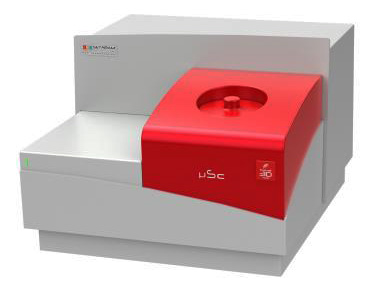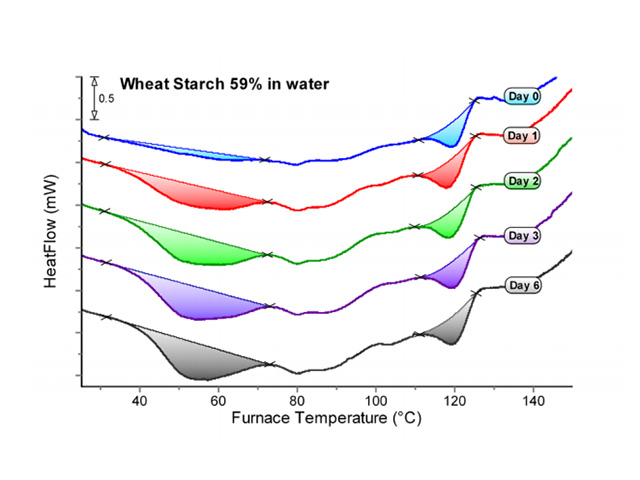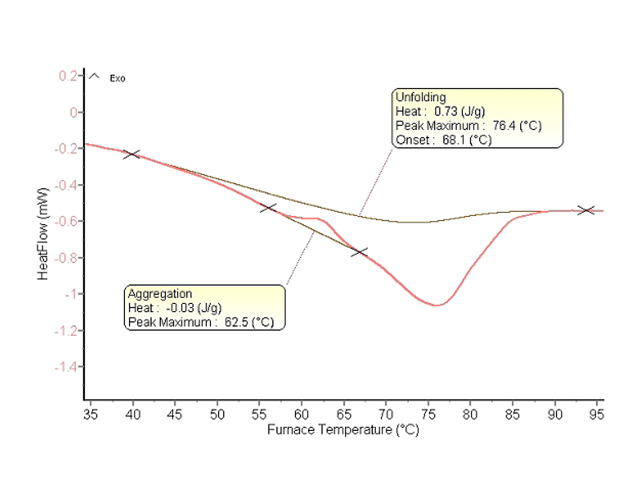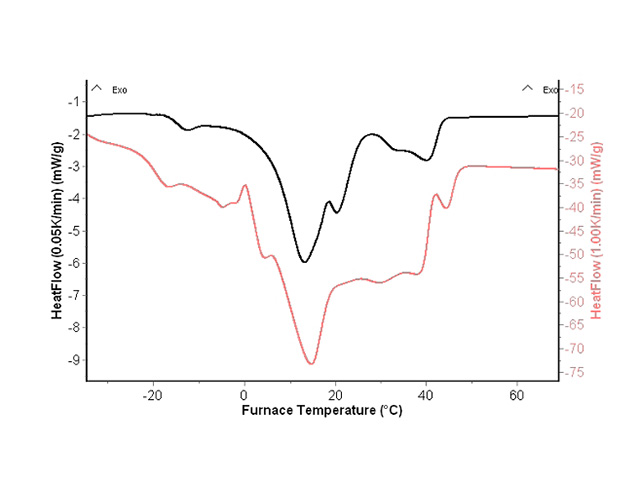Thermal Analyzer in Characterization of Foodstuffs

Moisture, and other natural compounds present in the foodstuffs (milk, eggs, meat, vegetables, cereals) are generally heat sensitive. Heating these foodstuffs often changes the physical properties microbiological and sensory characteristics. Determinations of the "time-temperature" parameters is useful in maintaining the physical stability or long-term storage and safety of food. For example, delay the lipid oxidation in butter, hindering of starch staling in bread, or fat blooming in chocolate, or phase separation in sauces.
These are the areas of focus for food-engineering researchers, who rely on differential scanning calorimetry (DSC) to understand the properties of food raw materials from the perspective of thermodynamic dynamics of non-equilibrious reactions, or interactions of unidentified chemical molecules.
Setaram offers a comprehensive range of instrumentation that can simulate the conditions found in all food processes. This includes challenging conditions from the impact of low temperatures on protein denaturation to the new research area of high pressures as an alternative to prolonging food shelf life.
RETROGRADATION OF STARCH (MicroSC in scanning mode)
Gelatinized starch goes through retrogradation, which involves recrystallization of amylose and amylopectin. Ageing of wheat starch dough was studied with the new MicroSC microcalorimeter.
Different thermal effects are detected:
- Melting of recrystallized amylopectin (endotherm between 30°C and 80°C). Heat of melting increases with the ageing of the dough and stabilizes with time, nicely fitted by an exponential law for wheat and maize.
- Melting of amylose-lipid complexes (endotherm at around 120°C). Heat of melting increases with the ageing of the dough and stabilizes with time.
- At higher temperature (around 160°C), melting of recrystallized amylase is detected (not on the figure)
 RETROGRADATION OF STARCH
RETROGRADATION OF STARCH
DENATURATION OF ALBUMIN (MicroSC in scanning mode)
Albumins are major proteins which are found in many food products such as egg white, milk or meat. These proteins are able to coagulate under the influence of the temperature. This thermal property is commonly used in food processes, such as in sugar refining to clarify the solutions or as emulsifying and gelling agents.
This phenomenon is detected using the MicroSC calorimeters on a sample mass of 550 mg of 10% albumin in a 0.1M NaCl solution pH 5. The temperature is programmed from 20°C up to 95°C at 1°C/min. The aggregation transformation is clearly detected prior to the denaturation.

MELTING OF PALM OIL AT DIFFERENT SCANNING RATES (MicroSC in scanning mode)
Palm oil is mainly constituted of esters of glycerol and fatty acids named glycerides. The composition of glycerides in oil is an important characteristic to control its quality.
This composition can be determined following the specific phase transitions between polymorphic forms and solid-liquid phases of the constituents using the new MicroSC calorimeter. When heating, different endothermic effects are detected corresponding to the different crystal forms. By lowering the scanning rate (down to 0.05°C.min-1), a better separation of the different effects is reached, providing a better identification of the different fractions without affecting the quality of the heat flow signal.



